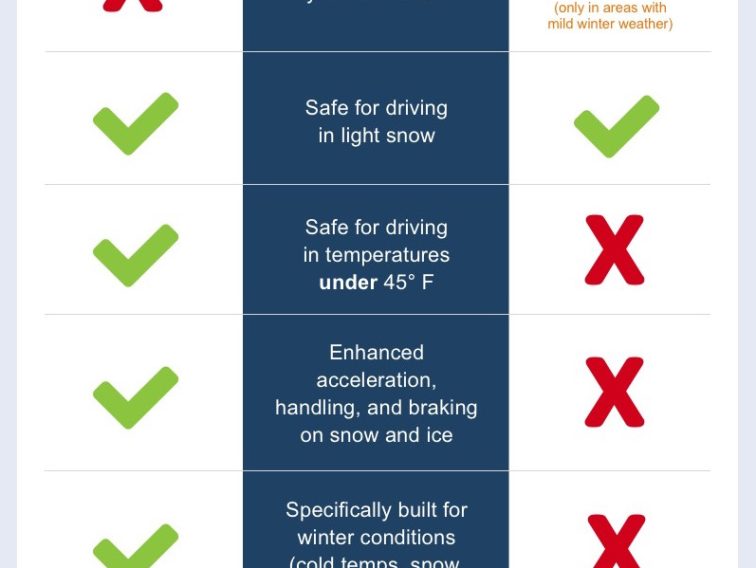Contents
Intro
When it comes to winter driving, are all season tires good in snow? That’s a burning question for many drivers, especially when those first flakes hit the ground. All-season tires are designed to handle a mix of weather conditions, but their performance in the snow can be a bit of a mixed bag. In this article, I’ll break down how all-season tires stack up in snowy conditions, look at their tread design, share some real user experiences, and explore what tire manufacturers have to say. So, buckle up as we dive into whether all-season tires are a pass or fail when the snow starts to fall!
Performance in Snow
Alright, let’s get real. All-season tires are a popular choice, primarily because they balance performance across different conditions. But when it comes to snowfall, they aren’t exactly the most reliable option. You might find that they handle light snow decently, but once you throw in heavier snow or icy conditions, problems start to arise. As expected, all-season tires can struggle with traction.
Now, while reviewing user experiences on Reddit, I noticed mixed reactions. Some folks love their all-season tires and claim they do fine in moderate winter weather. Personally, though, I wouldn’t rely on them if I lived in an area that sees heavy snow, like the Rockies. In those conditions, winter tires truly shine!
To see how all-season tires compare, check out this detailed analysis from Les Schwab. You’ll find out that winter tires outperform all-season tires when it comes to icy roads, especially since winter tires are designed with deeper treads perfect for those tricky conditions.
Tread Design
The tread design of all-season tires plays a significant role in their performance in snow. Typically, all-season tires have shallower grooves compared to their winter counterparts. This means they may not channel snow and slush as effectively. Think of it like this: if winter tires have a beefy tread that grips onto icy surfaces, all-season tires are more like that friend who’s good in a pinch but doesn’t quite do the heavy lifting.
When discussing tire performance, it’s all about having the right tread for the job. For instance, winter tires have larger, more aggressive patterns, which provide better traction in snowy and icy conditions. Therefore, if you’re planning to hit the road during a storm, you’d be better off with winter tires.
User Experiences
The real-life feedback from drivers about all-season tires in snow is invaluable. Some users are more than content with their all-season tires, stating they work well enough for the occasional snowfall. However, I found plenty of opinions suggesting that while they are sufficient for light snow, they simply don’t cut it when it comes to heavier accumulations or icy roads. One Reddit user even noted that switching to dedicated winter tires made a world of difference.
Many enthusiasts advocate for the switch to winter tires if you live in a place with harsh winters. This debate on forums illustrates a spectrum of experiences, from those who swear by all-seasons in mild climates to others who face the harsh realities of winter driving and recommend going full winter.
Manufacturer Recommendations
So, what’s the consensus from manufacturers? According to the insights from Prinx Tire, while all-season tires can manage light snow, they are not designed for severe winter conditions. Manufacturers suggest opting for dedicated winter tires if you live in regions where snowfall is significant.
In fact, many tire companies emphasize that all-season tires are essentially a compromise. So, if you prioritize safety and performance during the snowy months, it might be smart to invest in a good set of winter tires instead. Just think about that initial investment versus the peace of mind when driving through a snowstorm!
Overall Conclusion
When all is said and done, it’s clear that all-season tires are decent in light snow but face limitations in harsher winter conditions. If you live somewhere that experiences a lot of heavy snow, winter tires are well worth the investment. Want to stay updated on the best tire options? Don’t forget to check back here for more tips and insights into auto repair and maintenance!
If you found this guide helpful, drop a comment below, share your thoughts, or read more insightful articles on auto maintenance at Esmazda.com.




